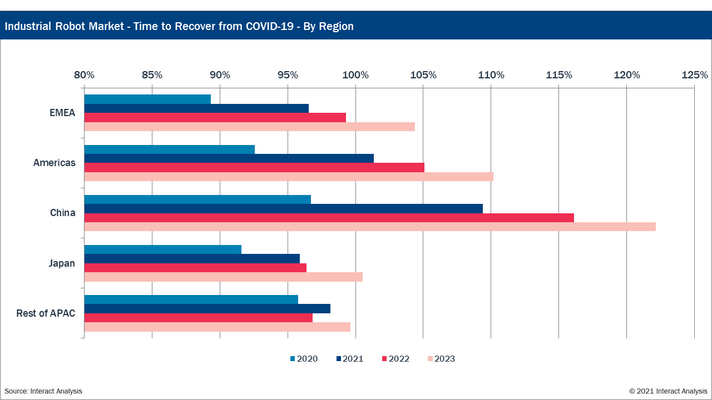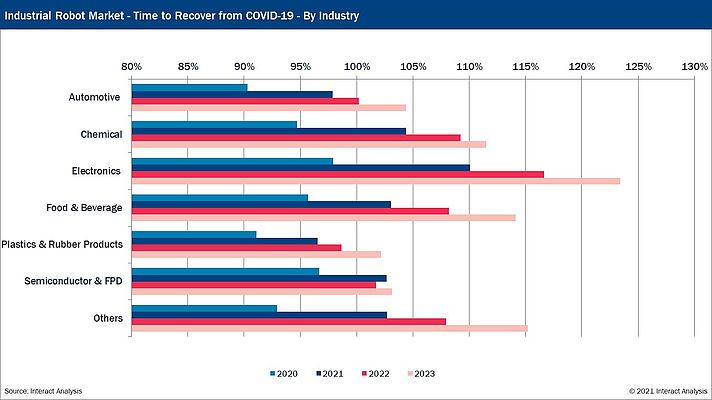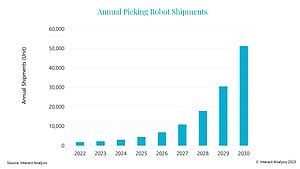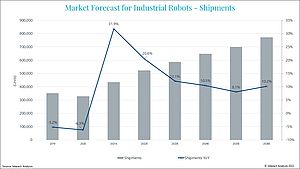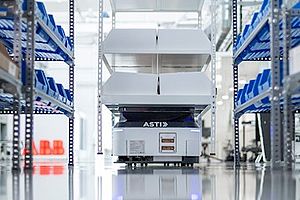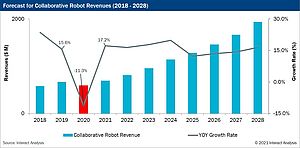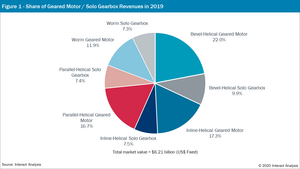Interact Analysis has published a new report on industrial robotics showing that the industrial robots sector is on track to deliver a swift recovery after a recent unprecedented two-year downturn.
2019-20: unprecedented events caused continuous negative growth for the first time for the industrial robotics sector
During the economic slow-down in 2019 the industrial robotics sector saw shipments fall by 5.4%. The pandemic of 2020 saw a further fall of 5.9% as 80,000 fewer units were shipped than previously forecast. This was a difficult time for the sector, and it will take time to recover. Interact Analysis acknowledges that pre-COVID estimates of growth up to 2024 have now gone out of the window, but it has identified strong drivers for growth as economies emerge from the pandemic. The company’s in-depth research has concluded that new industry applications for robotics and more advanced technologies coupled with reducing prices will cause an acceleration in revenues in 2021, with an increase of 9.2% in revenue terms, and 9.6% in shipment terms. This will be followed by sustained growth up to 2024.
Articulated robots are predicted to be the slowest to recover to 2019 levels, given that the industry where they are predominantly used – automotive – has been hit so badly by the pandemic. Sales of SCARA robots, used in light duty pick and place and assembly operations are predicted to recover as their potential for use in different applications is recognized. The collaborative robot market, which saw negative growth for the first time in 2020, is forecast to bounce back with an impressive 15-20% year-on-year growth rate up to 2028.
Uneven recovery for different regions and classes of robot - China to lead global revival
The expected pattern of regional recovery for the industrial robot sector is familiar. The virus started in Asia, and then moved to Europe and North America, and the infection continues to spread. As a result, normal business operations will resume earlier in Asia, and this will impact on robot shipments in those areas, most notably in China, where the virus was brought under control by May 2020. The Chinese market is the only one forecast to surpass 2019 levels by 2021. This is in the main due to the large domestic demand coming from China itself, rather than an increase in China’s export markets which are, of course, still badly hit by COVID.
Jan Zhang, senior director at Interact Analysis says: “The downturn of 2019 and the shock of the pandemic tripped up the industrial robotics market, but it only stumbled. Factors such as staff shortages, social distancing, the ever-pressing need for efficiency and speed, and the realisation of the need to build in resilience in the face of world shocks such as COVID-19 mean that now more than ever, industries across the globe recognize the value of robotics. We believe the next few years will see the sector recover its footing and thrive.”


